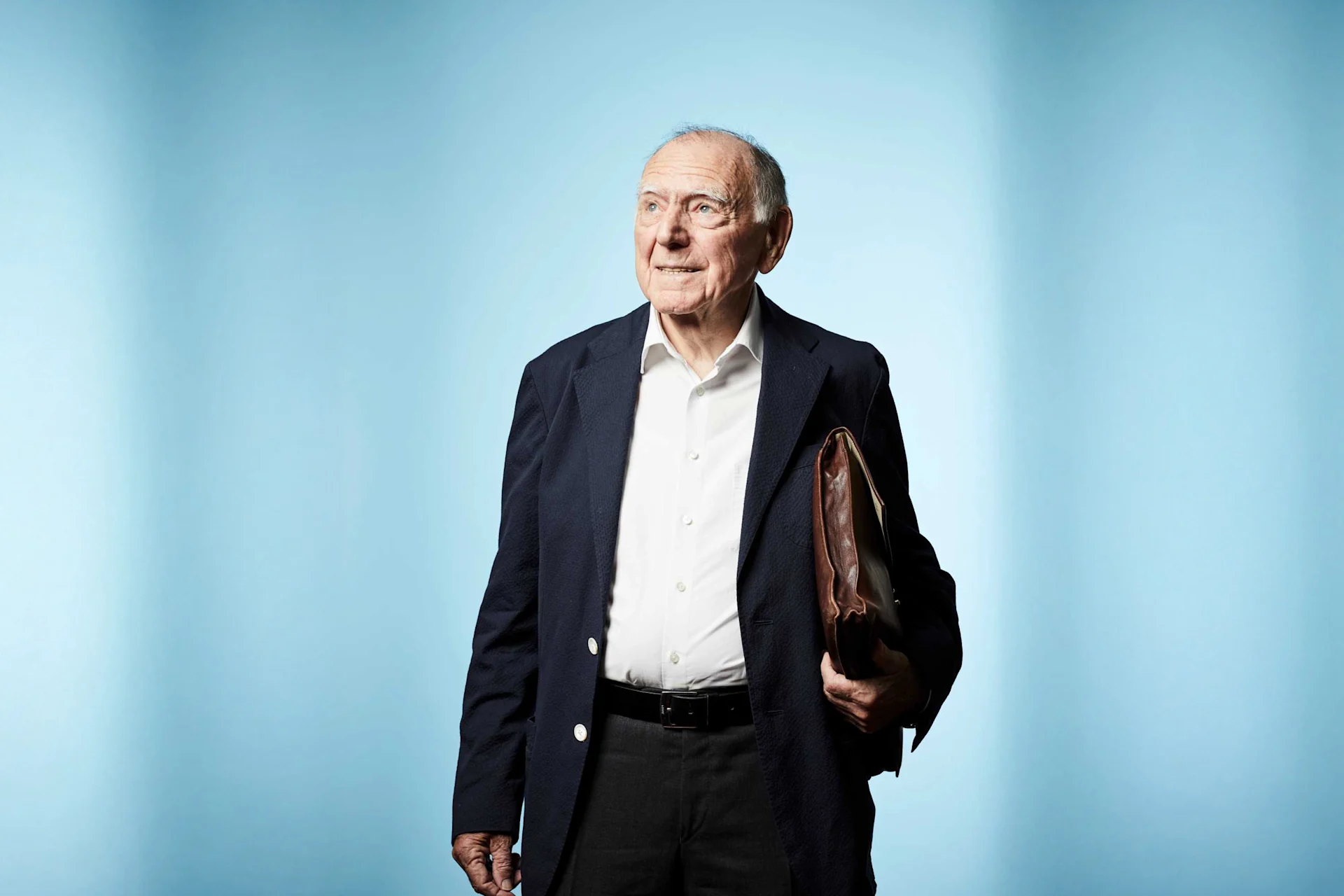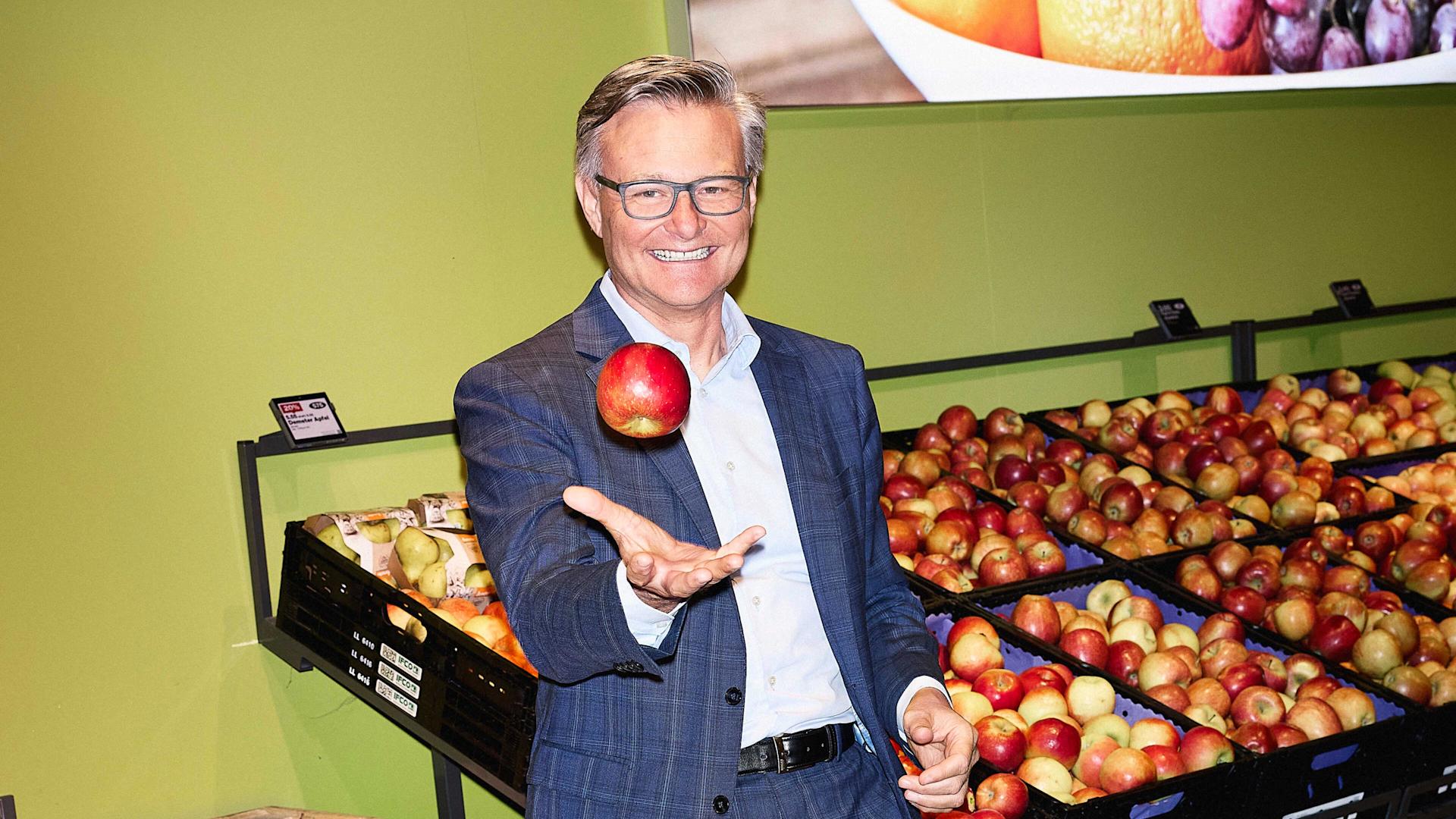
Obituary
Farewell, dear Jules Kyburz
Obituary of Jules Kyburz, former President of the FMC Executive Board, who has died at the age of 93.
navigation

Migros rebuilding
Why is Migros rebuilding? And what does the Migros of the future look like? Mario Irminger, President of the Executive Board, gives his view.
One of great pleasure, especially when I see our strong range of fresh produce. And we can be really proud of that. I go shopping once or twice a week, during which I notice areas where we still have potential – such as prices and, in some cases, also quality. We want to become cheaper again. Our store concepts are not up to date everywhere, either. We need additional branches and more modern stores. We have some catching up to do here.
It pains me that our decisions affect the fate of many employees, who are not to blame for the current difficult situation. Their personal fates would pain me enormously if I didn’t distance myself from this.
A clear distinction must be made between food retail and non-food. People still like coming to supermarkets; however, electronics, sporting goods and furniture are increasingly being bought online. You have no chance on the market if you’re not number one in your segment. The online business with Digitec Galaxus, on the other hand, is going extremely well. We are adapting to the changing needs of customers by selling our specialist stores.
Migros is solidly financed, but we have gradually lost market share; however, we can act from a position of strength and divest businesses that are struggling or no longer align with Migros’ core business.
I am in awe of Dutti’s life’s work. Much of what he created has survived to this day. But what is often forgotten is that Dutti was a shrewd businessman: if something didn’t work out, he also had the courage to abandon an idea or close a business. Protecting your heritage by preserving a certain status quo would be wrong. A company is not a museum. A company must constantly evolve and focus on customer needs.
Naturally. And it’s great, because it shows that Migros is important to people. It is regarded as a public service, similar to Swiss Post and SBB. When something changes at Migros, everyone has an opinion on it, which is completely justified. We are aware of the great responsibility we have towards the Swiss population and are trying to make the changes in as socially responsible a way as possible.
None that we haven’t already announced. We expect to be able to announce the new ownership of SportX very soon. The divestment processes for the other specialist stores are underway. We currently envisage being able to present a solution at Hotelplan and the cosmetics manufacturer Mibelle by the end of the year. We’ve always said that we’re not interested in the fastest solution, but in the best solution. And our main focus here is on our employees.
Our core business, the supermarket, is characterised by very low profitability. You can’t fool yourself. We’re talking about 2 to 2.5 percent profit, which we can only achieve if we work ultra-efficiently. It would be negligent to maintain processes and jobs that aren’t necessary. Migros would simply not be sustainable.
Even we need to be able to invest in a sustainable future. The profit feeds back into Migros. Over the next few years, around two billion Swiss francs will be invested in expanding and renewing our store network.
We are still one of the most sustainable retailers in the world. And we will continue to stand up for people and the environment in future.
The fragmentation and lack of focus have nothing to do with the cooperatives. This is more due to the fact that Migros was doing very well for a very long time. During this era, the company was tempted to tap into new areas outside its core business. The cooperatives allow us to be closer to regional needs than any other retailer in Switzerland. Our “From the region, for the region” label is one of the strongest in the country.
Let’s put it this way: we wanted to be something we weren’t – an international brand supplier. The focus is now back on manufacturing high-quality own brands at the best prices for Migros, Denner and Migrolino.
Of course – it’s a great innovation! It will take time for the system to establish itself on the market. You only buy a new coffee machine when you replace your old one. Here, too, we are not manufacturing goods for the world, but rather issuing licences, as has already been done in the USA and Canada.
This was taken completely the wrong way – we are still one of the most sustainable retailers in the world. And we will continue to stand up for people and the environment in future; however, we will do this less with lots of small measures and, instead, focus more on the big issues and tackle them in a targeted manner throughout the Migros Group. For instance, we are working to reduce our carbon footprint and are committed to biodiversity in Switzerland together with our partner IP Suisse.
This is firmly anchored in our Articles of Association and is completely undisputed. Migros will continue to invest a great deal of money each year in culture and society.
What we provide in the food sector makes an important contribution to Switzerland’s basic supply. This was particularly evident during the coronavirus pandemic. Medbase can achieve the same in the medical sector. With doctors’ surgeries, pharmacies and other services, we can contribute to cost-effective basic medical care in Switzerland.
This is not out of the question. We need to be open to new ideas. We keep a very close eye on which models work for others. The US supermarket Walmart only recently closed its health clinics again. Nevertheless, we like to be inspired by new approaches.
Young at heart, innovative, but at the same time aware of its great 100-year tradition. Our goal is to position Migros in such a way that it can be successful for another 100 years.